Had the virus not been infected, a human would have laid eggs instead of giving birth to a child?
07 Jul 2020 ( IBTN News Bureau )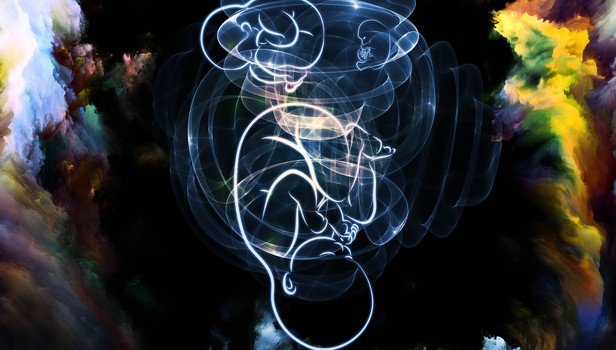
Right now the whole world is moaning under the arrest of Covid-19 epidemic. The new corona virus or SARS CoV-2 is responsible for this. This is not the first virus to wreak havoc on humanity. Viruses have caused terrible injury to humanity many times.
In 1918, five to ten million people were killed by the influenza virus that caused havoc on the world. It is estimated that smallpox virus has killed at least 200 million people in the twentieth century.
Looking at these examples, it seems that viruses are a big danger for us and they should be destroyed from the earth. But is it possible that all the viruses from the earth are wiped out.
But, be careful before you intend to destroy the virus from Earth. If this happens, we will not survive either. Without a virus, life in this earth is not possible.
"If all of the viruses suddenly end up on Earth, it will take one to one and a half days for all the creatures on this earth to die," says epidemiologist Tony Goldberg of the University of Wisconsin-Madison University in the United States. Viruses are the pivot of life on this earth. So we have to ignore their evils. ''
How many viruses are there in the world, it is not known yet. Just know that most of these viruses do not spread any disease in humans. There are thousands of viruses, which play a very important role in running this earth's ecosystem. Then whether they are insects, cows, buffalo or humans.
Susana Lopez Sharaton, a virus expert at the National Autonomous University of Mexico, says, "Viruses and other living organisms live in a perfectly balanced environment on this earth. Without the virus we will not survive."
Most people do not know how important are the viruses to run life on this earth. One reason for this is that we only research about the viruses that cause diseases. However, now some courageous scientists have stepped up to the unknown world of viruses.
So far, only a few thousand viruses are known to humans, while there are millions of such viruses, about which we do not know anything. Marilyn Roussink of Pennsylvania State University says, "Science only studies microbes." It is a pity But this is the truth.
Now that we do not know about most viruses, we do not even know how many viruses are dangerous for humans. Viral scientist Curtis Suttle of the University of British Columbia says, "If we look at the total number of virus species, the number of viruses that are dangerous to humans would be around zero."
Viruses are the axis of the ecosystem. The most important viruses for us are those that infect bacteria. These are called Fagus. Which means those who swallow.
Tony Goldberg says that Fagus viruses play an important role in controlling bacterial populations in the sea. If these viruses end, then the balance of the sea will suddenly deteriorate.
90 percent of the organisms in the sea are microbes, or small one-cell organisms. They make up half of the Earth's oxygen. And this cannot be done without viruses. Viruses found in the sea kill half of the bacteria and 20 percent microbes daily.
Due to this, mosses, algae and other vegetation present in the sea are fed. With which they make oxygen through photo-synthesis, with the help of sunlight. And this oxygen keeps life on the earth. If the virus ends, there will not be enough oxygen in the sea. Then life on earth will not be possible.
Curtis Suttle says, "If death is not there, life is not possible." Because life depends on the recycling of the elements present on earth. And this recycling is done by viruses.
Viruses are also necessary to control the population of organisms in the world. Whenever the population of an organism grows, viruses control the population by attacking it. For example, human populations are controlled by epidemics. If there are no viruses, the population of organisms on Earth will be out of control. If only one species dominates, then biodiversity will disappear.
The survival of some organisms is dependent on viruses. Such as cows and other ruminants. Viruses help these organisms convert grass cellulose into sugar. And then it becomes the source of meat and milk on their body.
Viruses also play a major role in controlling bacteria that grow inside humans and other organisms.
The grass of America's famous Yellowstone National Park can tolerate severe heat, so the virus is responsible for it. This research has been proved by Roussink and his team.
The virus found in halapeno seeds protects it from insects that soak up the sap. Roussink's team, in their research, has found that some plants and fungi transfer the virus from one generation to another, so that their safety cycle remains. If the virus was not profitable, why would plants do it?
Viruses form the protection cycle of humans. Infection of many viruses protects us from certain types of microbes. GB virus C, a distant relative of the virus responsible for dengue, is one such virus. Because of this, AIDS disease does not spread rapidly in an infected person. And if this virus is in a person's body, then the possibility of dying from the Ebola virus is reduced.
Herpes virus can protect us from diseases like plague and listeria. Herpes victims are protected from the bacteria of these diseases.
Viruses can also become medicines to fight many of our diseases. There was a lot of research in this direction in the Soviet Union in the 1920s. Now many scientists in the world are doing research on virus therapy again. The way bacteria are becoming immune to anti-biotic, then we have to find an alternative to anti-biotic soon. Viruses can do this. They can be used to eliminate bacteria or cancer cells that spread disease.
Curtis Suttle says, "To fight against these diseases, we can use the virus in the same way as a guided missile. Who will directly target the target microbes, destroy bacteria or cancer cells." Through the virus, we can prepare a new generation of medicines to treat all diseases.
Since viruses constantly change, they have a wealth of genetic information. They enter other cells and capture the system of copying their genes. Therefore, the genetic code of these viruses is forever recorded in the cell of that organism.
We also got eight percent of the genes of humans from the virus itself. In 2018, two teams of scientists discovered that the codes we got from viruses millions of years ago play a big role in saving our memory.
If today, instead of laying eggs, humans are able to give birth to a child directly, then this is also a wonder of infection of a virus. Approximately 13 million years ago, the infection of retroviruses spread widely among human ancestors. It was due to a gene in the human cells from that infection that humans developed the concept of having a baby directly instead of conceiving and then laying eggs.
Scientists have just started research on all the roles that viruses are playing on the earth. As we learn more about them, we will be able to use the virus better. Perhaps they will give us the means to fight many diseases or other such help, which is good for the whole earth, not just humanity. Therefore, instead of hating the virus, continuous efforts should be made to know more about them.
(Click here for Android APP of IBTN. You can follow us on facebook and Twitter)
Share This News
About sharing
-
 20 Aug 2024
What did the WHO expert say on comparing MPox with COVID?
20 Aug 2024
What did the WHO expert say on comparing MPox with COVID?
What did the WHO expert say on comparing MPox with COVID?
Tuesda...
-
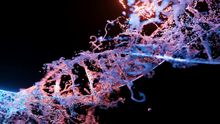 20 Mar 2024
Scientists claim regarding HIV, infected genes can be extracted from the cell
20 Mar 2024
Scientists claim regarding HIV, infected genes can be extracted from the cell
Scientists claim regarding HIV, infected genes can be extracted from the cell
-
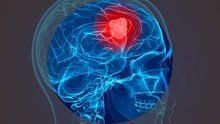 11 Jan 2024
What did scientists find in the study for better cancer treatment?
11 Jan 2024
What did scientists find in the study for better cancer treatment?
What did scientists find in the study for better cancer treatment?
... -
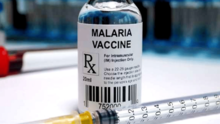 03 Oct 2023
World Health Organization approves world's second malaria vaccine: SII
03 Oct 2023
World Health Organization approves world's second malaria vaccine: SII
Serum Institute of India (SII) has said that the World Health Organization (WHO) has approv...
-
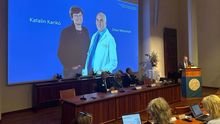 02 Oct 2023
Nobel Prize for Medicine awarded to scientists who invented the technology of mRNA Covid vaccine
02 Oct 2023
Nobel Prize for Medicine awarded to scientists who invented the technology of mRNA Covid vaccine
The Nobel Prize for Medicine has been announced to be awarded to the pair of scientists who...



